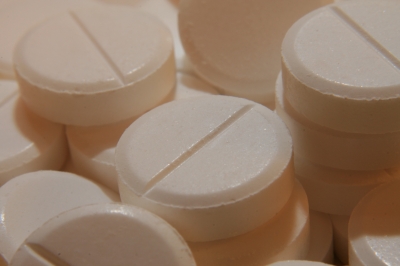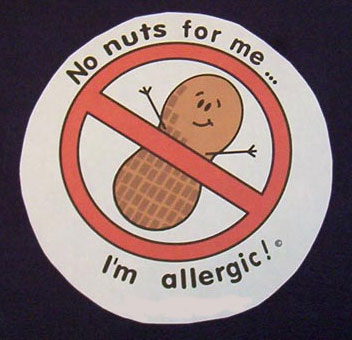Travel Tips for the Family
Springtime for many families means taking a much-needed vacation. Here are some ways to stay healthy while you are away from home:
- Enjoy yourself while eating out, but watch your waistline at the same time. How? Opt for broth-based soups rather than cream-based; whole-grain breads; roasted, baked, broiled or grilled meats and poultry; and diet soft drinks or water. Also ask for salad dressing on the side and substitute a side of vegetables for French fries or chips.
- If you are going to a warm climate, wear sunglasses and sunscreen with at least SPF 15. Apply sunscreen repeatedly if you will be swimming or participating in physical activity.
- Pack healthy snacks, such as granola bars or trail mix, for your trip so you will not be tempted to purchase high-calorie treats to curb hunger.
- Make time for fitness on your vacation. Walk to your destinations, and incorporate physical activities into your plans.
For more information on travel tips, contact your travel agent. For more information on your insurance, contact your agent.
Diminish Household Product Dangers
Some of the most dangerous drugs aren’t found out on the street, they are right under your kitchen sink. In fact, most common household products pose some danger if they are inhaled. Since the chemicals in inhalants enter the lungs in such high concentrations, they can have a more toxic affect than any other type of abused drug. Therefore, it is important to always follow the manufacturer’s instructions for safe use and to keep chemicals out of reach of children.
Dangerous Products
These products are just some of the household chemicals that pose a danger to you and your family if they are inhaled into your lungs:
- Gasoline
- Paint thinners and removers
- Glues and adhesives
- Spray paint
- Hair spray
- Deodorant spray
- Lighter fluid
- Nail polish remover
- Permanent markers
- Household cleaners such as glass cleaner, wood polish and soap scum remover
Symptoms and Health Effects
If you have inhaled a dangerous chemical, you may exhibit one or more of these symptoms:
- Spots or sores around your mouth
- Red or runny eyes and nose
- Dazed or dizzy appearance
- Nausea and loss of appetite
Over time, your body can suffer major health effects from inhaling household chemicals such as:
- Loss of memory and concentration
- Hearing loss
- Muscle spasms
- Permanent brain damage
- Death
For more information on household dangers, contact your insurance agent.
Memory and a Healthy Diet
There are certain foods that can increase the chances of keeping your brain healthy as you age. If you want to remain mentally sharp as you age, consider adding the following foods to your diet:
Glucose
- Your body metabolizes glucose when eating healthy sugars and carbohydrates.
- Opt for fruits that are rich in natural sugars.
Fish
- Fish is rich in omega-3 fatty acids, which are essential for good brain function and development.
- Fish is linked with a lower risk of dementia and stroke, can help slow cognitive decline and can enhance memory as you age.
Nuts and Chocolate
- Nuts are rich in vitamin E, which is attributed to slowing cognitive decline as you get older.
- Dark chocolate (consumed in moderation) contains antioxidants, which can enhance concentration.
- Opt for an ounce of nuts and chocolate daily to reap the health benefits without consuming excess calories.
Avocados and Whole Grains
- Avocados and whole grains enhance blood flow to stimulate brain cells.
Blueberries
- Blueberries protect the brain from stress and may reduce the effects of Alzheimer’s disease and dementia.
- Blueberries may increase your learning capacity and motor skills as you age.
Apples
- Apples are rich in the antioxidant quercetin, which protects against Alzheimer’s disease. Don’t peel your apples, though, as the skin contains the most quercetin.
Spinach
- Some studies have shown that spinach can prevent and even reverse memory loss.
- Spinach is high in folic acid, which protects against Alzheimer’s disease and memory loss.
Iron-rich Foods
- Iron deficiency negatively affects learning, memory and attention.
- Eat dark, leafy greens, beans, lean meat and soy to boost the iron in your body.
Older adults who regularly ate brightly-colored fruits and vegetables experienced less cognitive decline compared to those who did not consume these foods, according to a recent study. The antioxidants in these foods eliminate free radicals and protect neurons in the brain from damage.
Fruits and Vegetables for Disease Prevention
Eating a diet rich in fruits and vegetables is not only important for maintaining weight and general health, but it actually helps prevent chronic diseases and conditions, including:
Cardiovascular Disease
Heart disease is the world’s leading killer. All fruits and vegetables are good choices for the prevention of heart disease and stroke, but the best choices are green leafy vegetables and citrus fruits.
High Blood Pressure and High Cholesterol
High blood pressure is a primary risk factor for heart disease and stroke. How fruits and vegetables lower cholesterol is still a bit of a mystery. However, some experts think that the soluble fiber in them helps block the absorption of cholesterol from other foods.
Cancer
It appears that eating more fruit likely lowers the risk of cancers of the esophagus, stomach and lungs, and reduces the risk of cancers of the mouth, pharynx, colon-rectum, larynx, kidney and bladder.
Gastrointestinal Conditions
Indigestible fiber that comes from fruits and vegetables is important for preventing intestinal ailments. As fiber passes through the digestive system, it soaks up water and expands. This can calm irritable bowels and decrease pressure inside the intestinal tract.
Cataracts and Macular Degeneration
Usually related to aging, a cataract is the gradual clouding of the eye’s lens. Macular degeneration is damage to the center of the retina. Dark green leafy vegetables contain two pigments (lutein and zeaxanthin) that aid in protecting the eye. And the Vitamin A found in carrots, cantaloupe and pumpkin aids in night vision.
Birth Defects
Neural tube defects (NTDs) are major defects of a baby’s brain or spine. Folate (folic acid) is a B vitamin used in the body to make new cells. Most NTDs can be prevented if a woman has enough of this in her body before becoming pregnant. Folic acid is found in asparagus, cooked spinach and certain fortified breakfast cereals.
Other diseases and conditions that can be prevented are coronary artery disease and osteoporosis, as well as dental problems and skin infections. The next time you get hungry, consider a fruit or vegetable!
For more information on diet and disease prevention, contact your physician. For more information on your insurance, contact your agent.
Brain Awareness: Use It or Lose It
The brain’s capacity is enormous, yet many scientists suggest that we only use a small percentage of our brain. What are you doing to maximize your brain’s potential?
Brain Functions
Your brain helps you analyze sensory data, remember information, learn new information, create thoughts and make decisions.
It is divided into halves called cerebral hemispheres and each hemisphere is further divided into four lobes: frontal, parietal, temporal and occipital. Each lobe has its own responsibilities. The frontal lobe is responsible for cognition and memory. The parietal lobe processes sensations related to touch. Visual perception is controlled by the occipital lobe. The temporal lobe is responsible for auditory senses.
The brain, like many other organs, ages. The aging brain is responsible for a decline in memory, decision-making ability and verbal skills.
The brain’s capacity is enormous, yet many scientists suggest that we only use a small percentage of our brain. What are you doing to maximize your brain’s potential?
Exercise Your Brain
There are many ways that you can delay the aging of your brain:
- Exercise your mind—Challenge your brain daily by making note of last week’s activities, working on crossword puzzles, each night. During sleep, the brain repairs itself, collects the day’s events and files everything into memory.
- Reduce stress—Stress can lead to memory loss. High stress releases cortisol in the brain, which absorbs the brain’s primary food source, glucose. Reduce stress with exercise, meditation or a quiet activity you enjoy.
- Quit smoking and refrain from illegal drug use—Research shows that smoking can lead to mental decline; drugs such as ecstasy and marijuana can result in mental deterioration.
- Listen to music—Research shows that music is good for the brain, specifically baroque music, which can reduce stress.
Research suggests that eating a healthful diet rich in whole grains, fruits and vegetables not only helps you stay slim and lowers your risk for heart disease, but also preserves memory, boosts alertness and may even prevent Alzheimer’s disease. For more information on how to keep your brain active, contact your doctor. for more information about your insurance, contact your agent.
Change Your Diet to Lower Your Cholesterol
Diet plays a big part in why some people suffer from high cholesterol. Modifying your diet even a little can lower your cholesterol – lowering your risk for heart disease and stroke.
Avoid Eating a Lot of Meat
- Make meat a minor player in your meals and eat lots of fruits and vegetables instead.
- Trim the fat and skin from meats and poultry.
- Avoid eating fatty cuts of beef, pork and lamb.
- When eating out, opt for a smaller portion of meat or choose to eat something vegetarian.
Eat Low-Fat Dairy Products
- Avoid dairy containing whole milk and cream.
Snack Wisely
Opt for low-fat snacks such as un-buttered popcorn, dried fruits or fresh fruits and vegetables. Avoid high-fat, high-calorie options like chips and candy.
Reduce Saturated Fat in Food Preparation
- Instead of butter or margarine, use a small amount of olive oil or cooking spray.
- Avoid using palm and coconut oil; use canola, sunflower, safflower, corn, soybean, olive and peanut oils instead.
- Bake, broil, roast, steam or stew food instead of frying.
Reduce Your Dietary Cholesterol Intake
- Eat no more than four egg yolks per week. Replace one egg with two egg whites in most recipes.
- Eat no more than six ounces of lean meat, fish and poultry per day.
- Avoid eating cholesterol-rich meats such as liver, brains and kidneys.
Eat Fiber-Rich Foods
Opt for fruits and vegetables, whole grains and legumes that are low in calories and high in fiber and complex carbohydrates.
Go for Nuts, Fruits and Vegetables
Fruits and vegetables are water-dense, contain lots of nutrients and protect your heart. Nuts are a great source of protein, but should be eaten in moderation because they are high in calories.
Eat Lots of Fish
Fish have essential fatty acids (omega-3s and omega-6s).
Reduce Your Salt Intake
Use herbs and spices to flavor your food instead of table salt. Be aware of the sodium content in foods such as soups and sauces.
Avoid Trans Fats
Trans fats raise LDL cholesterol levels (bad cholesterol) and lower HDL cholesterol levels (good cholesterol). Avoid foods containing trans fats completely or eat them in extreme moderation.
Drink Alcohol in Moderation
Women should consume up to one drink per day and men should have up to two drinks per day.
Read Product Labels
Avoid foods with the following items listed as one of the first ingredients: meat fat, coconut or palm oil, cream, butter, egg or yolk solids, whole milk solids, cocoa butter, chocolate, or hydrogenated or partially hydrogenated fat or oil.
If three months of changing your diet does not lower your LDL cholesterol levels, consult your physician. He or she may put you on medication or refer you to a dietitian for more assistance.
For more information on how altering your diet can help improve your lifestyle and lower your life insurance rates, contact your agent.
Keep Your Roof Clear of Snow
Snow can jeopardize the structural integrity of livestock shelters, barns and other farming structures if large accumulations are not properly cleared after a snowfall.
Removing built-up snow should be a top priority during winter months. Heavy, wet snow can cause roofs to buckle or collapse, which can result in serious injuries to people and animals.
There are several ways to remove accumulated snow safely:
- Remove the snow from open truss structures by increasing the heat inside.
- If the roof is flatter, remove the snow manually or hire a professional.
- Be aware of ice dams that can be invisible to the eye.
You see it on commercials all the time… sometimes accidents still happen. This is why it is highly recommended that you have protection under your home insurance policy to cover any damages that can occur. Contact your agent today for more information.
Get Active!
People of all ages benefit from physical activity. It doesn’t matter how out-of-shape you feel or how long you have been inactive – it is never too late to start aerobic activity. Simply stated, an aerobic activity is one that gets you breathing harder and your heart beating faster. It is also important to fit strength-building activities into your daily routine, in order to make your muscles stronger and prevent osteoporosis.
The Benefits of Physical Activity
Exercise can help control your blood pressure, blood sugar, and weight; help raise your “good” cholesterol; and prevent diseases such as colorectal cancer, heart disease and Type 2 diabetes. Becoming active can also:
- Help you look your best
- Raise self-esteem
- Improve sleep
- Strengthen bones, muscles and joints
- Reduce falls and arthritis pain
- Lower your chances of becoming depressed
- Be fun!
How Do I Get Started?
If you are not that active but want to get there, start by building physical activity into your life slowly. Begin at a comfortable level; once you get the hang of it, add a little more activity each time you exercise. Then, try doing it more often. Remember, any activity is better than no activity – even if you feel that you are not working out as vigorously as you should be, you are still doing your body tremendous good. Make exercise part of your daily routine; you are much more likely to keep up with activity if it becomes second nature.
What If I Have Health Issues?
If you have a health problem, it is always a good idea to speak to your doctor about what type of activity is best for you. No matter what you may be suffering from, there is always physical activity that you can do which will benefit your health; in fact, it can be a great way to help manage type 2 diabetes or high blood pressure.
How Much Exercise Do I Need?
You should do aerobic activity for at least 10 minutes at a time in order to achieve its full benefits. If you choose activities at a moderate level, such as walking fast or yard work, you should aim to get at least 2 hours and 30 minutes of this every week. If you choose vigorous activities, such as swimming laps, jogging or riding a bike on hills, get at least 1 hour and 15 minutes per week. Strengthening activities, such as push-ups, sit-ups and weightlifting, should be done at least 2 days a week. Focus on your upper body one day and your lower body the next.
I am already working out 2 hours and 30 minutes every week but not seeing a difference. What am I doing wrong?
Remember that the basic principle of losing weight and/or building muscle is to burn more calories than you take in. Make sure you are following a healthy diet of plenty of vegetables, fruits, protein and whole grains. If you are eating healthy foods, try stepping up your workout routine. Choose more vigorous activities or try increasing your workout time by 30 minutes each week until you can get up to 5 hours or more.
Working Out Is Boring. How Can I Make It Fun?
Try incorporating things you enjoy into your workout routine. Climbing on a treadmill is not the only way to get in shape! You can take the dog for a run, swim laps, go hiking, play videogames that encourage fitness… anything that gets your heart beating faster counts as working out. Involve your family in physical activity – play Frisbee, kick around a soccer ball, build a snowman – and you will find that not only did you get a workout in, but time flew by as well.
I’m Busy – I Don’t Have The Time to Work Out.
“Not having the time” is the oldest excuse in the book. Everyone has time to work out. Try breaking up activity into shorter sessions of 10 minutes at a time. For example, go for a quick walk on your lunch break at work, or park far away the next time you go to the store. Use the stairs instead of the elevator. Take your dog for a longer walk than usual. Carry multiple grocery bags into the house instead of one at a time. Do sit-ups or push-ups during commercial breaks while watching your favorite show. There are so many ways to incorporate extra physical activity into your day.
It’s easier to get in shape than you think. The next time you are waffling between watching television and working out, set that program to record and get out there! You will be in great shape in no time.
Source: Healthfinder.gov
For more information on how to begin a workout program, how to eat healthier, or both, visit www.healthfinder.gov, www.fruitsandveggiesmatter.gov or www.cdc.gov. For more information on how this could affect your life insurance, contact your agent.
Daily Aspirin Therapy for Heart Health
Heart disease is a concern for many Americans and is the leading killer of women in the U.S. Along with a healthy diet and exercise, those at risk of a heart attack or stroke can take another precaution to reduce their risks – a daily dose of aspirin.
According to the Mayo Foundation for Medical Education and Research, taking an aspirin daily can actually lower the risk of heart attack and stroke, as it interferes with the body’s blood clotting action.
As blood clots within the vessels that supply blood to your heart and brain, it can block arteries that are already narrowed due to the buildup of fatty deposits. When this occurs, blood cannot flow to the heart and brain successfully, which can lead to a heart attack or stroke. However, by taking aspirin on a regular basis, you can reduce clotting and potentially prevent a heart attack or stroke.
Is Aspirin Therapy Right for Me?
Taking a daily dose of aspirin is not right for everyone and it is ultimately up to you and your doctor to determine if this therapy will benefit your current health condition. Those who will typically benefit from daily aspirin therapy are:
- Smokers
- Those with high blood pressure
- People with a total cholesterol level of 240 mg/dL or higher
- Those with a low-density lipoprotein (“bad” cholesterol) level of 130 mg/dL or higher
- Those who lack regular physical activity
- Diabetics
- People experiencing lots of stress
- Men who consume more than two alcoholic drinks per day or women who consume more than one alcoholic drink per day
- People with a family history of heart attack or stroke
Though you may be afflicted with some of these risk factors, daily aspirin therapy may not be for you if you have any of these conditions:
- Suffering from a bleeding or clotting disorder
- Asthma
- Stomach ulcers
- Heart failure
- Taking certain medications that may increase your chance of bleeding
Dosage
There is no uniform aspirin dosage that suits all patients with heart disease risk factors. Some patients benefit from 75 mg, which is less than one baby aspirin, while others benefit from 325 mg, or the potency of one regular aspirin.
Side Effects
There are several side effects of taking daily aspirin therapy that you should discuss with your doctor before beginning this regime. They include:
- Hemorrhagic stroke (bleeding stroke)
- Gastrointestinal bleeding (development of a stomach ulcer)
- Allergic reaction
- Ringing in the ears and hearing loss
- Negative interactions with alcohol
Talk with your doctor about this inexpensive, readily available preventive treatment for heart disease to determine if it is right for you. For more information on how this can affect your life insurance, contact your agent.
Allergies: Foods
While there is no cure for a food allergy, diet and medication can help an individual control allergic reactions and live a healthy life.
Food Allergies
A food allergy occurs when a person’s immune system incorrectly identifies a food as harmful and creates specific antibodies to fight off that food. Then, the next time that particular food is eaten, large amounts of chemicals are released in an attempt to protect the body. These chemicals cause the allergic symptoms. Research suggests that 90 percent of all allergic reactions are caused by foods, including milk, eggs, peanuts, tree nuts, fish, shellfish, soy and wheat.
Food allergies are most common in the first few years of life due to immaturity of the digestive system, but sensitivity typically declines by age 10. Food allergies are commonly found in people with a family medical history of asthma, dermatitis, or pollen and mold allergies.
Signs & Symptoms
The symptoms of a food allergy usually occur within minutes or up to two hours after eating the allergy-causing food and can include:
- A tingling sensation in the mouth
- Swelling of the lips, tongue and throat
- Itching, hives and a rash throughout the body
- Cramping, diarrhea or vomiting
- Wheezing and difficulty breathing
- Nasal congestion
- Dizziness or lightheadedness
- Loss of consciousness
Treatment
No medications are currently available that cure food allergies. Fortunately, once you identify which foods trigger your allergies, you can avoid those foods and prevent an allergic reaction. However, in the case of anaphylaxis (a sudden and severe allergic reaction), epinephrine should be administered as soon as possible. A health professional can administer this medication
in an urgent care facility or emergency room, or if prescribed by a physician, it can be self-injected into the body as soon as symptoms appear.
Prevention
Get into the habit of knowing what is in the food you make and order. When shopping and when preparing food, check ingredient labels. Many companies will list if their products are processed in a plant that contains nuts. When eating out, be sure to ask about ingredients and food preparation so you know what to expect.
in an urgent care facility or emergency room, or if prescribed by a physician, it can be self-injected into the body as soon as symptoms appear.
Did You Know?
Children with food allergies require special attention since they often are not making food choices for themselves. Parents, other family members, child care professionals and school personnel should be aware of the food allergy to recognize the symptoms of a reaction. For more information regarding treating food allergies, contact your physician. For more information regarding your insurance, contact your agent.












